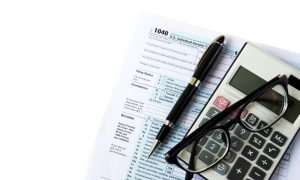Restaurant tax deductions can make a huge impact on your tax burden as an owner of such establishments. It can be overwhelming and time-consuming to focus on tax planning on top of your other duties, but doing so can help you boost your bottom line with the right business investments. The right help from a tax professional will mean you know you’re claiming everything you can.
How do you know if you qualify for tax breaks, and what expenses can you write off? This guide will cover the business tax breaks and deductions that could be available to you, eligibility requirements, and other tips to know when tax season rolls around.

What Are Restaurant Tax Deductions?
Restaurant owners have to cover different business costs to provide professional-quality food and associated services, including:
- employee costs
- food and ingredients
- insurance
- rent
- transportation
- advertising
- and more

What Kind of Business Is Considered a Restaurant?
- Full-service restaurants
- Limited-service eating places
- Cafeterias
- Special food services, including food service contractors, caterers, and mobile food services
- Bars, taverns, and other drinking places

6 Restaurant Tax Deductions to Know About
As with any business, operational expenses and other everyday costs are deductible, as long as the expense is both “ordinary and necessary.” In other words, expenses that are written off must be related to operating the business and must be a required cost. Here are a few deductions you could be missing out on.
1. Business Equipment
Restaurants need a range of equipment to operate, including ovens, furniture, a soda machine, and other devices and machinery. You can deduct these expenses on business equipment in full on your taxes under Section 179 of the tax code. So, anytime you have to make an upgrade, remember to keep your records and receipts to be able to claim them at tax time.
There are caps on this deduction to be aware of, however: In 2021, $1,050,000 is the limit for the total written-off amount, and $2,620,000 is the cap on equipment purchase deductions.
2. Operating and Food Costs
Fortunately, businesses can also write off all food and operational costs. Here is a full list of expenses you can deduct:
- Rental/lease payments
- Utility costs
- Food and beverage costs
- Supplies (cups, plates, napkins, straws, utensils, pots, pans, uniforms, etc.)
- Cleaning and maintenance costs
- Insurance costs
- Marketing expenses
3. Employee Compensation
4. Transportation Expenses
If your restaurant has a delivery or catering service, you may be able to write off transportation costs. You can track your mileage to deduct or write off all transportation expenses, including the cost of gas and normal wear-and-tear costs on the vehicle.
The mileage write-off is $0.56 per mile, which is easier to claim and often works out to be higher than itemizing vehicle costs. However, if the vehicle is expensive — like a luxury car or specialty food delivery vehicle — then wear and tear costs can exceed the mileage deduction. A tax advisor will help you figure out which option is a better deal.
One important note about tips: It’s your responsibility to ensure that employees make at least minimum wage when combining their salary and tips. That means you still need to track how much they’re making in tips at the restaurant.
5. Donations to Charity
Many restaurants donate food or other items to local charities. These donations are tax-deductible, and the written-off amount can be equal to the lesser of either:
- The cost basis of the donated food plus half of the amount that it would be sold for at fair market value
- Twice the cost of the donated food
6. Qualified Business Income Deduction
Beginning in 2018, businesses set up as pass-through entities can claim an additional 20% deduction known as the Qualified Business Income deduction. The restaurant must be a pass-through entity, however, or the restaurant owner must have pass-through income through a sole proprietorship, partnership, or S corporation, to qualify for the deduction.
This one can be complicated, especially when it comes to restaurants, so always make sure to discuss your options with a tax professional.

Get Help with Your Restaurant’s Tax Deductions
Claiming the right tax deductions is important for any business, especially restaurants, where the costs of supplies, labor, and location all put stress on your bottom line. Understanding what is and isn’t deductible can be complicated and confusing, but it doesn’t have to be when you work with the right tax team.
Getting help from an experienced tax professional is the right way forward so you are always following all applicable requirements and understand which deductions are eligible for your restaurant. Reach out to Silver Tax Group to speak to a tax expert about restaurant tax breaks and deductions that your business may qualify for.








